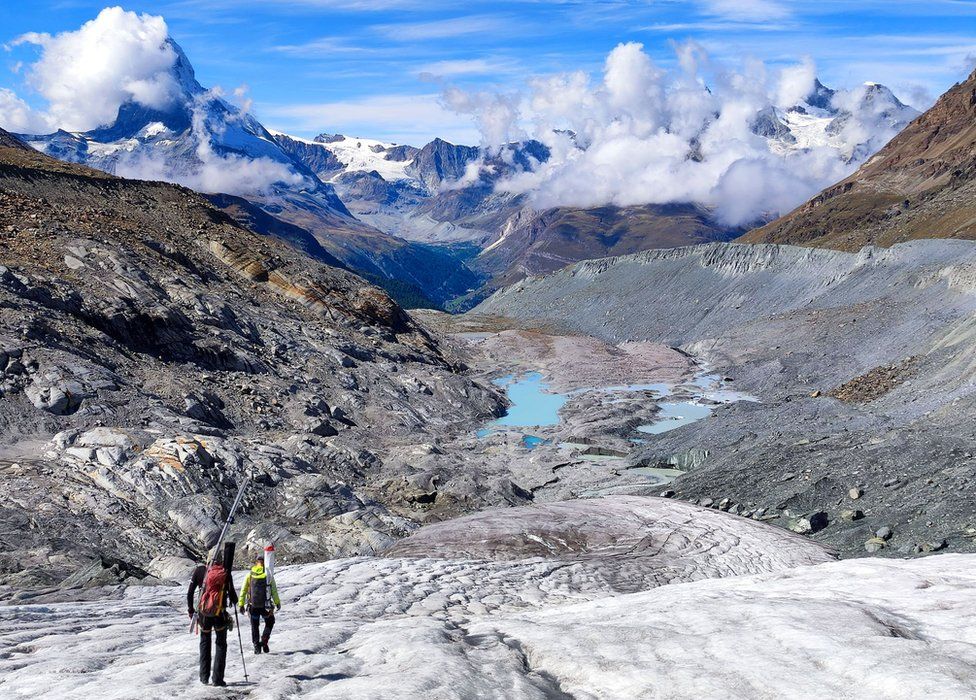-

-
-
Loading

Loading

Switzerland's glaciers have experienced a significant loss in volume, with a further 4% decrease this year. This follows last year's record melting of 6%. The data is presented in the annual report by the Swiss Glacier Monitoring Network (Glamos), a group of researchers who have been monitoring 176 of Switzerland's 1,400 glaciers for an extended period of time. The report also highlights the possibility that many of the alpine ice fields may not be salvageable, even if climate targets are met. The head of Glamos expressed his concern, stating, "It's terrible." In just two years, Switzerland's glaciers have lost 10% of their total volume, which is equivalent to the loss experienced between 1960 and 1990. Glaciologists are not reassured by the fact that this year's melt is slightly smaller than last year's record-breaking loss. Matthias Huss, the head of Glamos, emphasized, "It was still the second most negative year since measurements started. It's terrible to see that this extreme of last year is just repeating." The researchers attribute the loss to consecutive warm summers and reduced snowfall during the previous winter. They warn that if these weather patterns continue, the thawing will accelerate. Some of Switzerland's smaller glaciers have already disappeared, and others are shrinking rapidly, making it unlikely for them to be saved even if global temperatures stay within the Paris Agreement's target of a 1.5C rise. Glacier experts caution that without a significant reduction in greenhouse gas emissions linked to global warming, even larger glaciers like the Aletsch could vanish within a generation. The continuous loss of glaciers not only diminishes the beautiful landscape but also affects the availability of fresh water vital to Europe's rivers, irrigation, and cooling nuclear power stations. In recent years, the low water levels in the river Rhine due to glacier melt led to shipping restrictions. Additionally, during the extreme heat of 2022, fish had to be relocated from Swiss rivers because the water became too warm and scarce for their survival. Mr. Huss stressed the symbolic importance of glaciers in communicating climate change, stating, "If there is no climate mitigation, we are going to lose all the glaciers in the Alps by 2100."